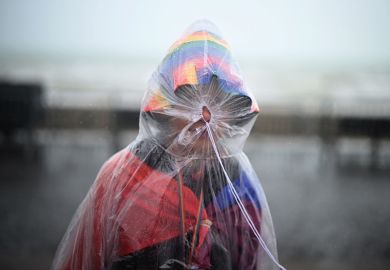Ever since the UK voted to leave the European Union, the impact of withdrawal on the border in Ireland has become increasingly problematic. Many people outside Ireland wonder why a “hard border” (which would be just like any other international frontier) should be such a problem. The answer lies partly with the “dissident” republicans: those who never accepted the “peace process”, with its explicit recognition of Northern Ireland as a legitimate political framework. For them, the border – even in its present invisible form – is a standing provocation; in a more visible form, it might (some fear) provoke a revival and a return to centre stage of these still marginalised groupings. How plausible is this fear? This book helps to provide the outlines of an answer.
Marisa McGlinchey grew up in Belfast during the last decade of the “long war” and came of age with the peace process. Her interviews with about 90 “dissidents” (some with a low public profile) were carried out mainly before the EU referendum, when Brexit was hardly even to be imagined. Her respondents were then a dwindling, fissiparous band, and her project was designed to rescue them from what seemed inevitable oblivion. By the time she finished writing, 18 months after the referendum, things were looking very different.
For most of the “long war”, there was in effect a single IRA (Irish Republican Army): the Provisionals. But the formation of Republican Sinn Fein in 1985 showed that the Provos’ gradual move into electoral politics would encounter republican resistance. This was nothing new: the initial decision to put up a republican prisoner as a Sinn Fein parliamentary candidate in 1917 was contested, and the movement’s historic split in 1926 came when the majority entered the Free State political system as Fianna Fáil. But the process of fragmentation has become more intense since 1998 – nine or 10 dissident groups have so far appeared.
McGlinchey puts “dissident” in quotation marks, seeing it as a negative label that misrepresents the consistency of their repudiation of politics, established well before 1916. But they undoubtedly dissent from the current Sinn Fein strategy of contesting elections in Northern Ireland and the Republic (in their eyes both illegitimate states). What alternative strategy they propose is a question that Sinn Fein’s Danny Morrison pointedly suggested she should put to them during her research. Their answers tend to be not so much practical programmes as moral injunctions – “keeping the faith”, not betraying the ideals of 1916 – or sweeping concepts of revolution. All of them cleave to the venerable principle of “physical force” (now “armed struggle”), but say little about how it might ultimately prove successful. They all emphasise that they want peace, not war.
Yet there is no doubt about their objective – the “unfinished business” of McGlinchey’s title. For republicans, unification is the only way to secure peace. They demand national “self-determination” for Ireland, holding that all inhabitants of the island are Irish, including those who determinedly (sometimes violently) refuse to identify as such. This belief is by no means confined to “dissidents”, and if a “border poll” looks like becoming practical politics, there could indeed be bigger trouble ahead.
Charles Townshend is professor of international history emeritus at Keele University.
Unfinished Business: The Politics of ‘Dissident’ Irish Republicanism
By Marisa McGlinchey
Manchester University Press
256pp, £80.00 and £19.99
ISBN 9780719096976 and 6983
Published 19 January 2019
Register to continue
Why register?
- Registration is free and only takes a moment
- Once registered, you can read 3 articles a month
- Sign up for our newsletter
Subscribe
Or subscribe for unlimited access to:
- Unlimited access to news, views, insights & reviews
- Digital editions
- Digital access to THE’s university and college rankings analysis
Already registered or a current subscriber? Login







